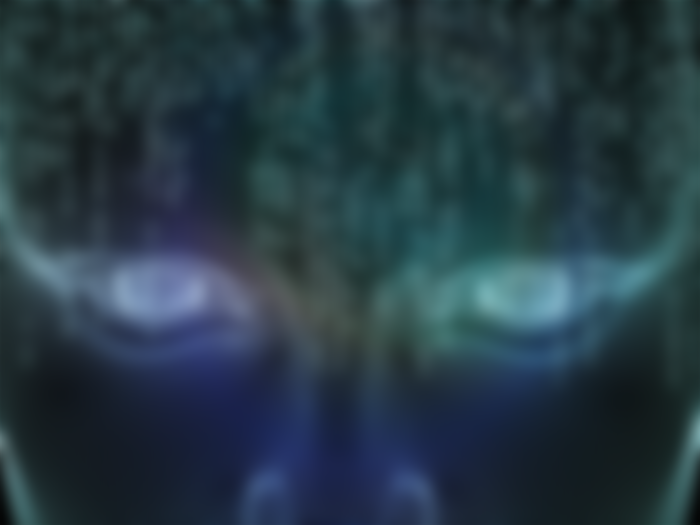Undoubtedly, scientific research in the field of artificial intelligence and simultaneous technological developments are advancing for the benefit of humanity. In fact, we are sometimes so caught up in potential benefits that we can ignore the devastating effects on the other side of the coin. We determine our ranks in the light of our position in society and our perspective on developments: "Artificial intelligence and technological systems operating on this basis are good / evil!" So let's try to look a little from the perspective of the "other" in this article.
Some view technology as a gift offered to humanity, as it frees people from boring and difficult jobs and enables them to lead a more fun and enjoyable life. The other side's arguments are solid: technology at its most general takes away people's jobs; makes the stronger the rich richer. Mahatma Gandhi advocated giving wool spinning tools and looms to be installed in each peasant's house, rather than textile workshops full of huge machines for the welfare of India. This would have enabled distributed mass production for the benefit of communities rather than centralized mass production that provided jobs for a small number of people.

Over the years, the technologies of the time gave way to brand new technologies, but the debate remained. We have seen the most concrete form of this problem, embodied in recent technologies, in our article about the delivery of the jobs that are responsible for human workers working on the production lines of factories to robots. History is full of revolutions based on the troubles of the disproportionate distribution of income and privileges. If future technologies are used to serve this purpose, many disasters will be waiting for us.
However, producing machines with increased intelligence poses an even more important problem than a power struggle between different layers of society: self-consciousness. In other words, the sum of what the person feels and thinks about himself. For example, in the 19th century, when Charles Darwin introduced the theory of evolution and the idea that humans evolved from (relatively) less valuable life forms, it created storms. Even after almost two centuries that have passed over this theory, humanity has been grappling with this idea. If the rapidly advancing technology of the future can produce machines with mental abilities that can compete with humans, how will society react?
In the past, the slower pace of technology has enabled our self-consciousness to adapt to the concept of "intelligence" and protect itself. By intelligence I mean this: If our ancestors who survived by picking fruit from trees or swinging spears and swords saw ordinary machines with pistons, levers, gears, cogs, and steam in the 19th century, they would probably think that they were faced with a supernatural intelligence. However, as we know today that these devices do not have any intelligence, we do not define today's automatic beverage and ticket vending machines or cash machines as highly complex vending machines as machines with artificial intelligence. What if we are faced with situations where these machines challenge human intelligence in today's or near future when technological advances are increasing with a terrible acceleration, and even if we face the fact that they surpass our intelligence at “speeds that we cannot adapt”, how will we react?

In order to predict how humanity will react to this, we will start from the reaction of humanity to a similar event that has happened in the past and we will follow a small clue that has its roots in the 20th century: Intelligence Quotient (IQ) tests. These tests were being used to measure children's intelligence. In the United States, children were classified according to their performance in this test and their education was directed based on these test results. Good scorers were sent to good schools, bad grades were sent to secondary schools, and they were encouraged to be supplemented with additional lessons. So, as humans, when we get a criterion that we think we can measure intelligence (and ToM tests are highly controversial), we immediately turn to the route of classification, discrimination and alienation. But what if the intelligence of the machines catches up with ours, or starts showing signs that it can? How are we going to treat people with inferior intelligence as a society towards machines? Can human dignity and dignity fall victim to this kind of comparison?

In fact, we've already begun to encounter situations where machines challenge human intelligence. Deep Blue beat Kasparov in chess, IBM Watson defeated human opponents in the game of Risk, computerized expert systems were equipped with algorithms to advise doctors on health, driverless cars began to be used in many states in America, working class jobs faster than them,and robots that work flawlessly. What about the self-consciousness of these people as the number of people who lost their jobs or lost their jobs to artificial intelligence continues to increase, or as the number of branches they feel threatened by machines increases?
There are those who argue that the intelligence of machines is inherently different from that of man; After all, humans are a biological entity, machines are not. For this reason, it is not possible for machines to imitate the processes people experience in decision-making mechanisms. Even if they make the same decisions, those decisions will not be made on the same basis. So, what are the boundaries that separate different intelligences, and how ethical is it as a society to follow a machine's decision?

These topics may sound like science fiction conversation. But for a long time now, claiming that it will never happen, "What if computers start to rule society?" We ignored the question, but the signs show that it is time to ask this question. If one day a computer database erroneously claims that your credit credibility is low due to a bad record, that you have a criminal record, or that you have withdrawn all the money from your account, will you or the data on the computer be believed? What if the navigation system tries to land your plane on an incorrectly defined runway because of fog, for example, on grassy land at the end of the runway? If the computer program or hardware in the hospital causes an error in the data it collects and gives the impression that you have cancer, is it the fault of the doctor who made the diagnosis? How many times have you heard the saying “I can't help you because the computer is crashed” in the bank, government office, hospital, shopping? So who is in control? Hasn't society already surrendered to machines?



